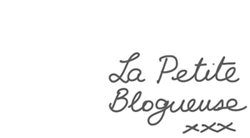So I was marvelling at the fact at how fast these orange snow sweeping trucks seem to just come out of the woodwork (so to speak) and do their job, and then 15 minutes later I'd see them come by again... I asked my friend what those things are called in French. Heck, I don't even know what they are called in English. I like to stick with "snow sweeping truck". (OK, a quick Google search tells me they are called snow plows. Please forgive my ignorance, I come from Australia, OK!)
So he told me they are called chasse-neige which I assume literally means "snow hunt(er)"... so after having recently bought a sèche-cheveux, this got me thinking. Whereas in English we use a noun+noun to describe an object, French uses a verb+noun (usually).
So you have snow-hunt and hair-dry, instead of snow hunter and hairdryer. Another example I quickly thought of was tire-bouchon, a bottle-opener/corkscrew, or in French, a cork-pull(er).
And with these compound nouns we come across the problem of what to do in the plural form. Yes, it's time for one of my language lessons. It's been a LONG time since I did one of these so I hope you'll learn something new.
Information compiled with help from the very excellent Shaum's French Grammar book and this website.
If a compound noun is ... formed by Two Nouns, an s or x is added to each part to form the plural.
Un chou-fleur Des choux-fleurs (cauliflower)
Un wagon-restaurant Des wagons-restaurants (dining car)
Une station-services Des stations-services (service station)
Une porte-fenêtre Des portes-fenêtres (French window)
Un oiseau-mouches Des oiseaux-mouches (hummingbird)
Un garde-chasse Des gardes-chasses (gamekeeper)
...formed by a Noun and its complement, only the first part is plural.
Un arc-en-ciel Des arcs-en-ciel (rainbow)
Un chef-d'oeuvre Des chefs-d'oeuvre (masterpeice)
Un timbre-poste Des timbres-poste (stamp)
Une pause-café Des pauses-café (coffee break)
Un hôtel de ville Des hôtels de ville (town hall)
Une pomme de terre Des pommes de terre (potato)
Un garde des sceaux Des gardes des sceaux ("Keeper of the seals")
In some rare cases, an s is added only to the last part
Un pique-nique Des pique-niques (picnic)
In other cases, it rests invariable
Un pot-au-feu Des pot-au-feu (boiling beef (dish))
Un rez-de-chaussée Des rez-de-chaussée (ground floor)
Un après-midi Des après-midi (afternoon)
Un hors-d'oeuvre Des hors-d'oeuvre (canapé)
Un tête-à-tête Des tête-à-tête (private chat)
...formed by a Verb and a Noun, both parts are invariable
Un abat-jour Des abat-jour (lampshade)
Un gratte-ciel Des gratte-ciel (skyscraper)
Un passe-partout Des passe-partout (passkey)
Un réveille-matin Des réveille-matin (alarm clock)
Un sèche-cheveux Des sèche-cheveux (hairdryer)
Un chasse-neige Des chasse-neige (snowplow)
Un gratte-papier Des gratte-papier (office worker/"pen pusher")
Un faire-part Des faire-part (invitation)
Un porte-monnaie Des porte-monnaie (purse)
but
Un cure-dent Des cure-dents (toothpick)
Un tire-bouchon Des tire-bouchons (corkscrew)
Un couvre-lit Des couvre-lits (bedspread)
Un couvre-pieds Des couvre-pieds (bedspread for end of bed/feet)
Un ouvre-boîte Des ouvre-boîtes (can opener)
Un garde-manger Des garde-mangers (cold room)
Un porte-plume Des porte-plumes (fountain pen)
Un garde-fou Des garde-fous (railing)
Un porte-clé(s) Des porte-clefs (keychain/keyring)
Un tire-ligne Des tire-lignes (calligraphic drawing pen)
Un porte-avion(s) Des porte-avions (aircraft carrier)
but
Un compte rendu Des comptes rendus (report)
...formed by two Verbs, both parts are invariable
Un laissez-passer Des laissez-passer (special travel document for UN or EU)Un va-et-vient Des va-et-vient (coming and going)
..formed by Adjective and a Noun
Un beau-frère Des beaux-frères (brother-in-law or stepbrother)
Une belle-soeur Des belles-soeurs (sister-in-law or stepsister)
Une grand-mère Des grands-mères (grandmother)
Un grand-père Des grands-pères (grandfather)
Un coffre-fort Des coffres-forts (safe)
Un château fort Des châteaux forts (fortified castle)
Un garde-champêtre Des gardes-champêtres (village policeman)
Une plate-bande Des plates-bandes (flower bed)
Un rouge-gorge Des rouges-gorges (redbreast)
but
Un nouveau-né Des nouveau-né(e)s
..formed by Two Adjectives
Un sourd-muet Des sourds-muets (deaf-mute)
Un franc-tireur Des francs-tireurs (irregular soldier/sniper)
..formed by an Adverb and a Noun
Une arrière-boutique Des arrière-boutiques (back shop)
Un sous-sol Des sous-sols (basement)
Un sous-multiple Des sous-multiples (sub-multiple (mathematics))
Invarible:
Un après-ski Des après-ski
Un après-midi Des après-midi
I learnt early on when I started learning French and I definitely have to revise this! I think I just confused myself 100x more by making this article. I think it'll be easier to just learn the vocab first!






















2 comments:
Wow! That's quite hardcore on the grammar there! I have never learned French grammar correctly (nor English to that point!) and whilst I do regret it a bit now, my written French is average, I make mistakes but I'm also capable of pointing out a lot of mistakes in others writing too.
Its excellent that you're keen on the grammar side but try not to get too bogged down in it if you can, vocabulary is key here (IMHO).
It was an interesting read!
Hi Piglet,
Thanks for your comments. Believe it or not, before I started to learn French I barely knew the difference between a noun and a verb. Of course I'd learnt it when I was very young, but like most people, forgot about it all and didn't really care... Then when I started learning French I tried to avoid learning grammar. I kid you not. I thought I could just memorize phrases and somehow it would just come to me but the more I got into it, the more I actually enjoyed it. To me it's a bit like solving a mathematical equation. It's painful at the start, but once you get the hang of it it's actually becomes 'fun'.. also reminded me of HTML, CSS and computer programming languages (which I have also studied/learnt). When everything is put together in the right order it just _works_.
Then, having learnt French grammar, it has made it much much easier to understand English grammar since it's a lot simpler anyway.
Enregistrer un commentaire